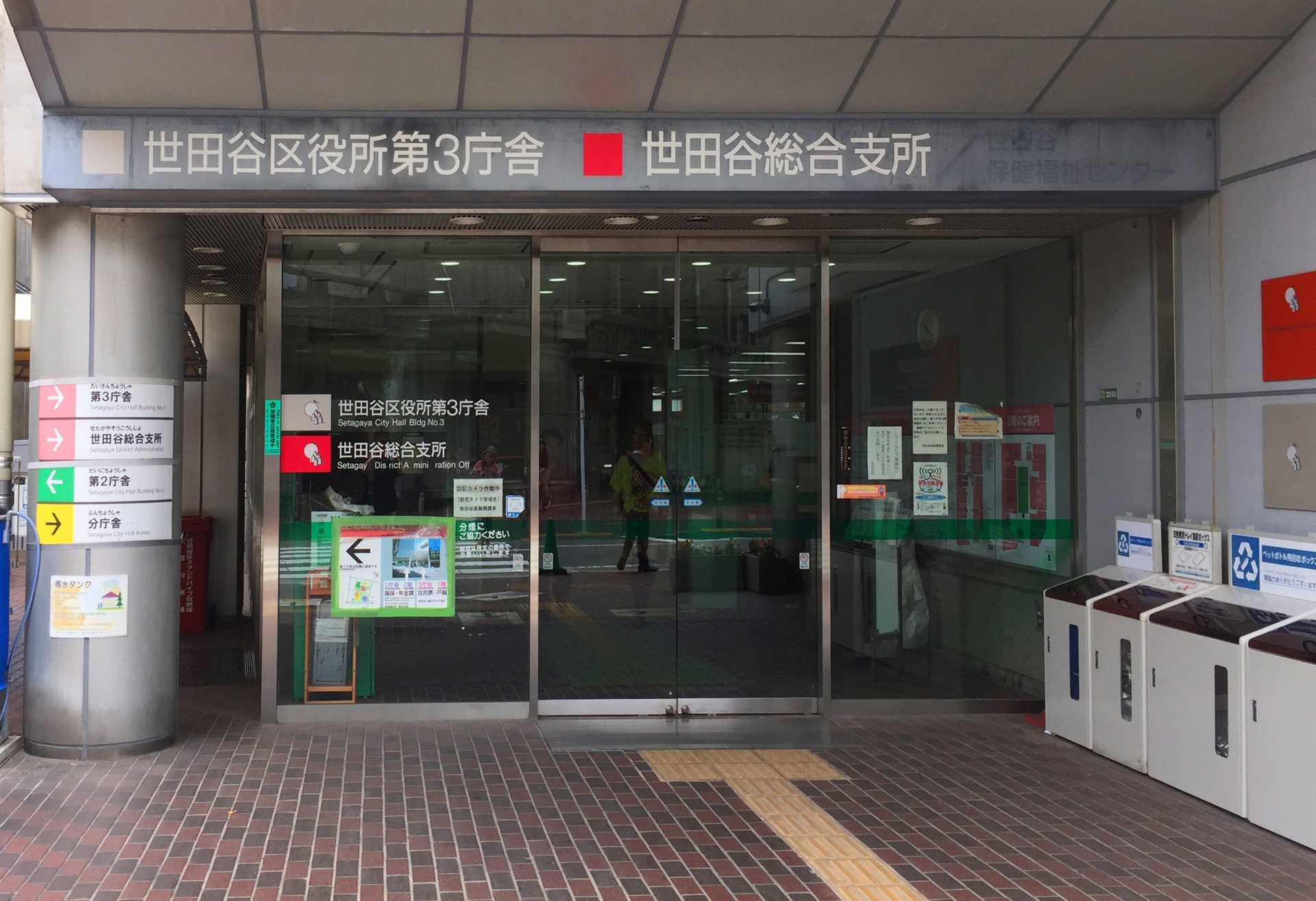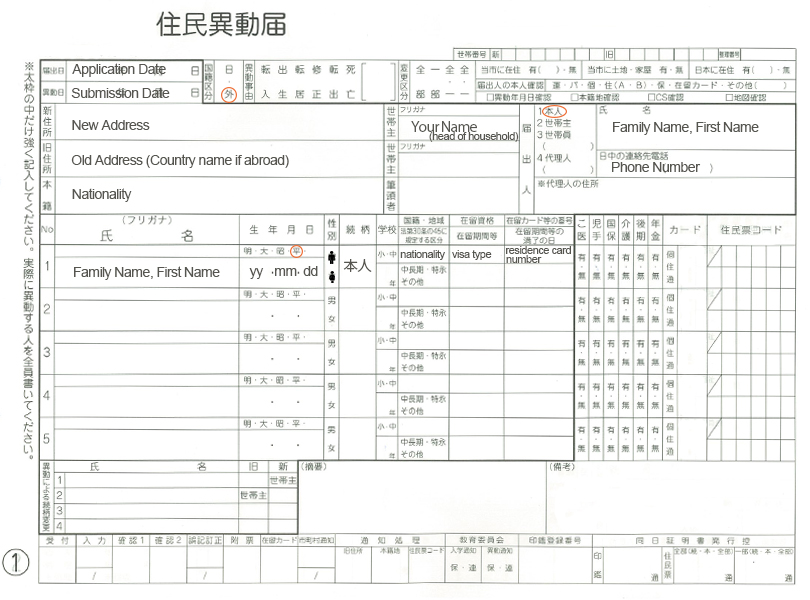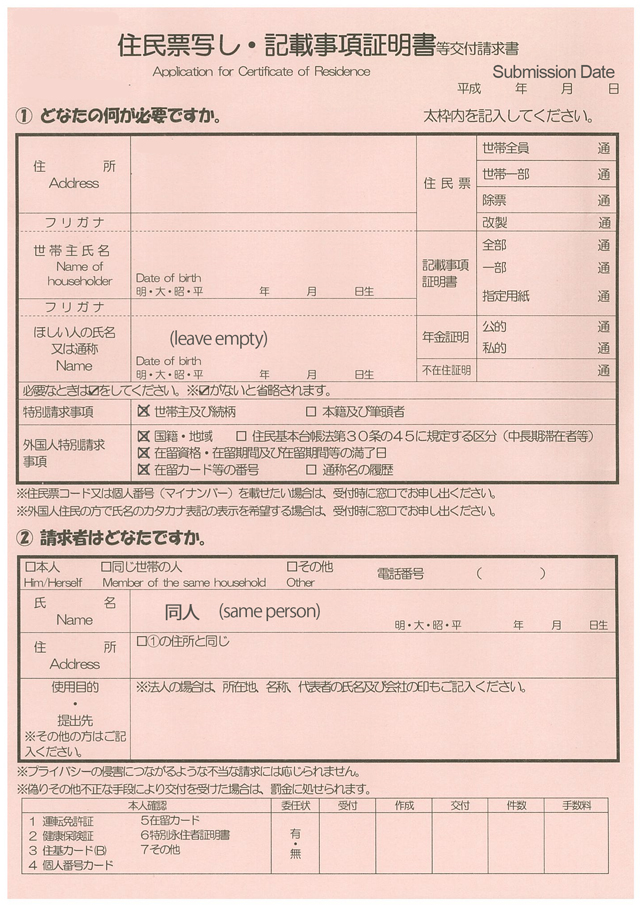Just Moved to Japan? Register at City Hall

by Madelaine
Registering one’s address is the final step in becoming a resident of Japan. But dealing with Japanese bureaucracy is not without its challenges. While it always works out somehow, there are many who resorted to hand-signs or resigned nods in the process.
We accompanied a new coworker who just arrived to Japan and doesn’t speak any Japanese to city hall, to find out what to be prepared for.
Resident Registration System
First a wee bit about Japan’s Resident Registration System. Every foreigner that plans to live in Japan mid- to long-term becomes a resident of Japan (with the proper status of residency/visa). At immigration one receives a residence card but to become a full member of Japanese society, a trip to city hall is necessary to register one’s address.
This way, no foreigner gets lost and it allows one to join various governmental services like National Health Insurance, which can be quite handy.
At City Hall
When we arrived at the city hall, we were greeted by an array of signs pointing in all possible directions. None of them were in English, except one which read “Information”. The staff there didn’t speak any English either but was very helpful in pointing our friend to the right counter after inquiring whether it was his first time in Japan.
What to bring
Make sure you have these things with you when you go to city hall.
- ✔ Residence Card (在留カード, ざいりゅう)
- ✔ Passport (sometimes they ask for it)
- ✔ New Address (including your room number!)
- ✔ Phone Number (company number is okay)
- ✔ Time (plan 1-2 hours)
Address Registration
Move-in Notification
To register a new address, fill in the “notification of moving-in” or 住民移動届 (じゅうみんいどうとどけ). If it is crowded, it might be best to go to the ticket machine and pick up a number first. Same goes for when you are unsure what to do and no other staff is around.
On the tables where the documents are lying out, there should also be sample documents, with English explanations on how to fill them out.
Even with the explanation, some things our coworker still struggled with. Since it wasn’t so crowded a staff came to help us out and pointed out two important things (at this time talking mostly to my Japanese colleague).
Room number
Know your address in detail, postal code, room number, and all. City hall has registers where they can look up every address and the name of the building, but without the room or apartment number, they cannot register someone. Our colleague didn’t know the name of his house, nor his room number. (When we went to his place later, there was indeed no sign of them anywhere on the walls…) Luckily, a phone call to the right person could fix this issue.
Phone Number
You will be asked to provide a phone number. If you don’t have one yet, you could put in the one of someone at your company too (they will be happy to have a Japanese-speaking contact number). If you don’t have any number, you might be able to put a foreign number or leave it blank.
Certificate of Residence
The certificate of residence cost 200 Yen per copy. They are not needed often, but starting a new job is one of the cases when one does.
After filling in your basic information, you can choose what information you want to be included on the certificate (nationality, status of residence, residence card number). In the second part, you have to declare who you are again. If you apply for your own certificate you don’t need to fill it out again but just put 同人.
Submit your Documents
Once everything is filled out, make sure you got your ticket and wait for your number to be called. When nothing is wrong, you will get another number and be asked to wait for one hour for them to process the registration. A great opportunity for us to take a look at all the (mostly Japanese) pamphlets we received full of useful local information. Studying the garbage schedule, wondering about the three types of plastics they distinguish, marveling at the small plastics bags for throwing away batteries, and explaining to our new coworker what Halloween is, time went by much faster than we expected. Oh wait, that’s because it only took 30 minutes.
Receiving your Documents
When the registration is complete, you will receive a document with your resident ID. It will come with a separate English explanation that urges you to keep this document safely stored somewhere.
If you applied for a certificate of residence you will be asked to pay now, before they hand them over to you.
If you are in possession of a working visa, then this is the end of your visit to city hall and you can head home. Your company is taking care of setting up all your other insurances.
For students and others, the city hall triathlon continues with the registration for National Health Insurance, etc. Here some Japanese skills are extremely beneficial to understand what’s going on. But even if you don’t, just follow the orders from the staff and you will somehow get through the process. Even if your city hall doesn’t get to see many foreigners and sometimes English explanations amount to little more than poorly translated bullet point lists, the Japanese bureaucracy is a well-oiled system and it will deal with you just as with anyone else.
Our coworker, who inquired about every single field on the forms and was allowed to take some empty ones home, is now equipped with experience, all set to introduce his friends to the Japanese bureaucracy when they arrive.
Recommended Posts

May Sickness: A Japanese Phenomenon
10 5月 2021 - Daily Life, Life




